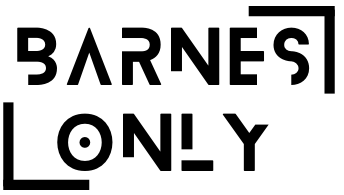In recent years, there has been a significant shift in the financial landscape of Ligue 1, the top-flight football league in France. French clubs, long considered underdogs in European competitions, have emerged as serious contenders, both on the pitch and in terms of financial might.
Gone are the days when French clubs operated with limited budgets and struggled to retain their top talent. Today, Ligue 1 boasts some of the wealthiest clubs in Europe, thanks to lucrative sponsorship deals, TV rights, and strategic investments.
One of the driving forces behind Ligue 1’s financial rise has been the arrival of Qatari and Emirati investment in French clubs. Paris Saint-Germain (PSG) is undoubtedly the flagbearer of this trend, having been acquired by Qatar Sports Investments (QSI) in 2011. Since then, PSG has become one of the most financially powerful clubs in the world, attracting top-tier talent like Neymar Jr., Kylian Mbappe, and Lionel Messi. QSI’s investment injected massive amounts of capital into the club, enabling them to dominate domestic competitions and make deep runs in the UEFA Champions League.
But PSG is not the sole beneficiary of this newfound financial muscle. Other Ligue 1 clubs have also attracted significant investments from wealthy owners. For instance, Olympique de Marseille is currently owned by Frank McCourt, an American billionaire who made his fortune in real estate. McCourt’s injection of funds, coupled with smart investment strategies, has rejuvenated the club, leading to their return to European competitions and a strong challenge in domestic competitions.
Beyond foreign ownership, Ligue 1 clubs have also capitalized on their improved on-field performances to secure lucrative sponsorship deals. Increased visibility and success on the European stage have attracted several high-profile brands to invest in French clubs. The iconic French fashion brand, Kering, has become PSG’s main sponsor, while Olympique Lyonnais has partnered with global shipping company, Emirates. These partnerships bring in substantial revenues, allowing French clubs to compete with Europe’s elite.
Moreover, Ligue 1’s financial strength is further bolstered by considerable TV rights deals. While France may not have the same international audience as leagues like the English Premier League or La Liga, the domestic TV rights market is highly competitive. Canal+ and beIN Sports have both invested heavily in securing broadcasting rights, leading to substantial revenue streams for Ligue 1 clubs. This influx of funds has enabled clubs to invest in top-quality infrastructure, youth development, and attract high-profile players.
The financial might of Ligue 1 clubs has not only impacted their on-pitch performances but also the football ecosystem in France. The prospect of competing with financially powerful clubs has encouraged other teams to invest in squad improvements and infrastructure upgrades, promoting healthy competition and raising the overall standard of the league.
However, this newfound financial strength does come with its challenges. There is a risk of clubs overspending and falling foul of UEFA’s Financial Fair Play regulations. Additionally, the dominance of a few clubs, notably PSG, has raised concerns about the competitiveness of the league.
Nonetheless, there is no denying the transformation of Ligue 1 in recent years. Once considered an afterthought in European football, French clubs have successfully challenged the traditional powerhouses and established themselves as serious contenders. Ligue 1’s financial might has allowed clubs to attract top talent, secure lucrative sponsorship deals, and invest in infrastructure, setting the stage for continued success both domestically and in Europe.

